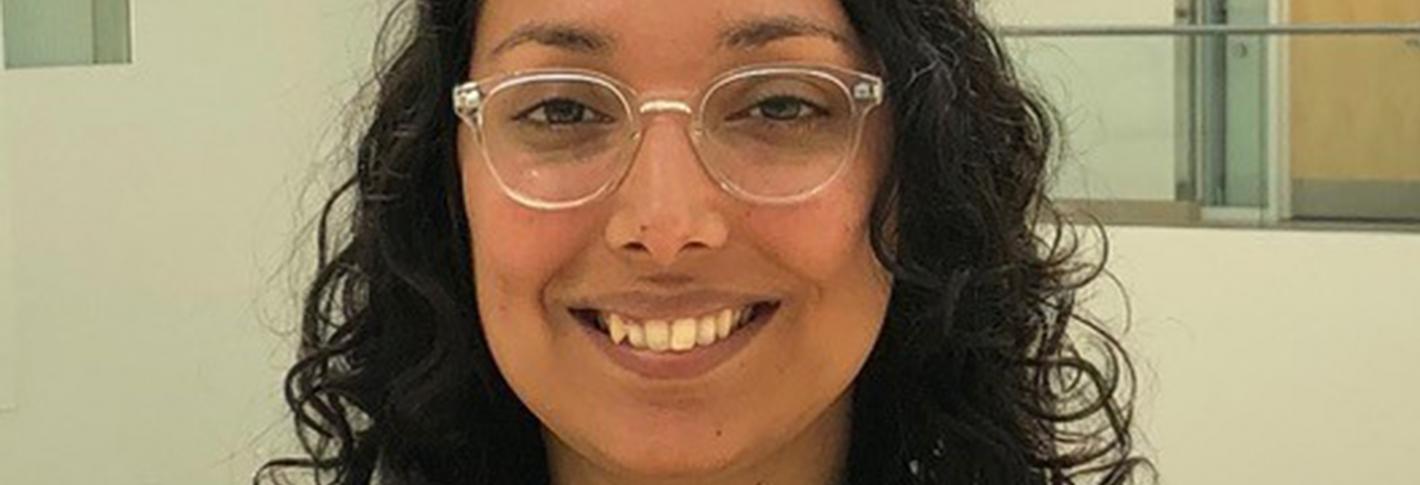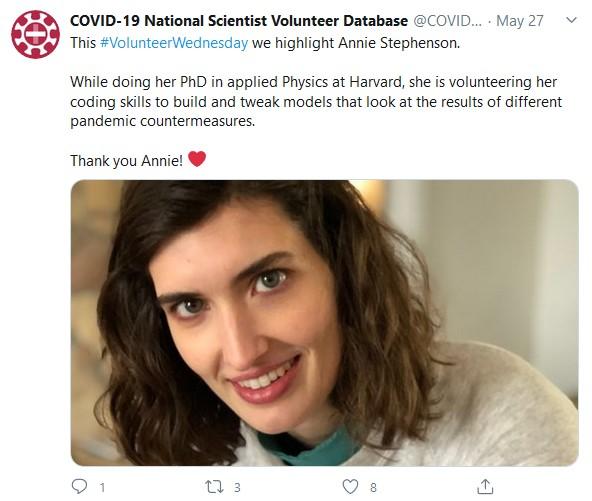
With a strong interest in science communication and social media, she was never far from Twitter. That’s how she saw a tweet by a colleague and connection at the Broad Institute that galvanized her into action. Neuroscientist Michael Wells, a fellow science communication enthusiast she had worked with, put out this call to action: “CALLING ALL SCIENTISTS: Help me in creating a national database of researchers willing and able to aid in local COVID-19 efforts. This info will be a resource for institutions/govt agencies upon their request.” The Covid-19 National Scientist Volunteer Database was born.
Within a few days thousands of scientists had signed up and thousands more have since. Muralidhar joined, too, taking on a leadership role on the team as a Social Media Lead. As a postdoctoral associate, she studies the role of inhibitory interneurons in memory extinction in the lab of Picower Professor Susumu Tonegawa. But helping coordinate an expert response to the pandemic has given her a chance to channel her experience and expertise as a science communicator.
“I figured this seems like a good way to keep myself busy and not go crazy when I’m not doing experiments,” Muralidhar said. “The volunteers that I have met and have formed relationships with over the last month or so have been very amazing people.”
The scientists in the database come from many disciplines, but they share many traits such as an eye for detail, understanding the value of well collected and analyzed data and the ability to solve p problems. Many volunteers, Muralidhar said, have therefore become involved in contact tracing, which helps public health officials track down people who may have been exposed to the SARS-CoV-2 virus through contact with people known to be infected. Other scientists have volunteered to donate personal protective equipment that they aren’t using while working from home. Still others with molecular biology backgrounds have volunteered to help analyze virus tests, for instance at local hospitals.
As part of her work running the database’s Twitter feed, which she coordinates with Alexandra Colón-Rodríguez, a postdoc at UC Davis, Muralidhar highlights database members with features such as #VolunteerWednesday or, in Spanish, #SaludTuesday. For instance, Muralidhar recently highlighted Crystal Lantz, a neuroscientist at the University of Maryland who serves as the database’s government outreach director, and Annie Stephenson, a physics graduate student at Harvard who “is volunteering her coding skills to build and tweak models that look at the results of different pandemic countermeasures.”
The feed also amplifies scientific conversation and information about the pandemic more broadly. Increasing quality communication about science is service at a time when the public needs good information to counter abundant misinformation. It is also a particular passion of Muralidhar who has created a media collective called IndSciComm to advance science communication in India.
“I’m trying to get good information out there,” she said, and she is happy to help support the database’s efforts.
“It doesn't matter what kind of a scientist you are, you can still be helpful,” Muralidhar said. “I’ve learned to repurpose my skills to help others, even if I’m not at the lab and even if I’m currently not doing the science that I set out to do. The fact that I’m able to help showcase that work, and put that up front and say, hey, these are people who are making a difference. I think that’s amazing.”


